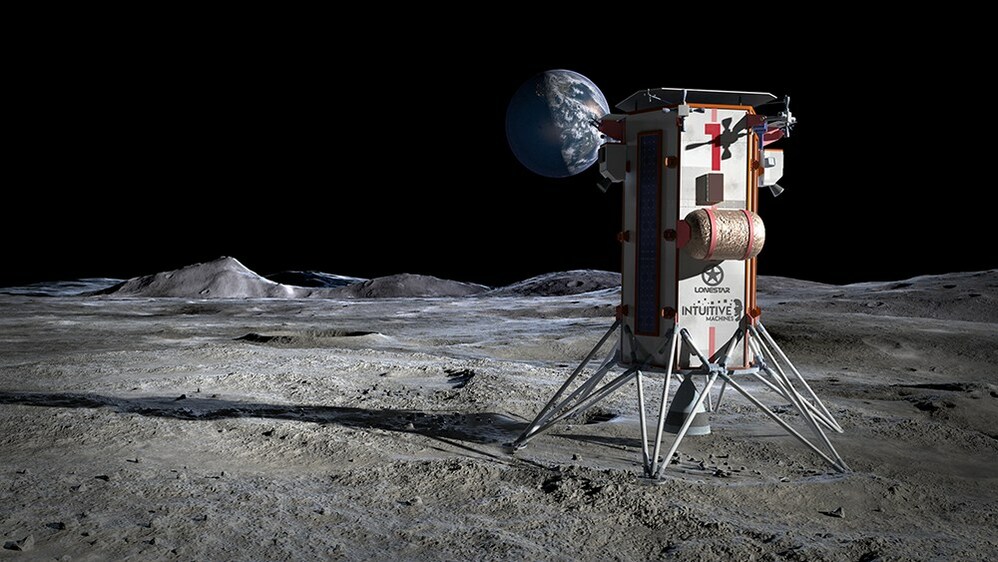The Moon landing of 1972 is unarguably one of the most iconic pieces of US modern history. Yet making another lunar landing has been a goal for almost 50 years.
Over the past few days, the Intuitive Machines IM-1 mission has made this possible, marking the first time the U.S. has landed on the Moon since the infamous voyage of 1972.
The mission is hosted by Lonestar Data Holdings Inc. and represents a pivotal moment for the future of off-world data storage.
Since the digital revolution, an increasing percentage of the world’s collective knowledge and intelligence is stored in a data format as a pose to more traditional analog methods.
While this has meant we can store huge volumes of data and make this information available in real time, many experts are increasingly concerned about how much risk this method creates. For example, while most of us access data remotely on the cloud, the information relies on huge data centers. Should these become compromised or damaged due to natural disasters or human conflict, humanity risks losing a huge amount of collective intelligence.
This is part of the motivation behind the pioneering mission that Lonestar and Intuitive Machines are delivering at this very moment.
Mission progress updates
Lonestar is on a mission to build data centers and communications infrastructure both on the lunar surface and in lunar orbit.
On February 19th, a data demo was successfully performed as Intuitive Machines’ Nova-C lander made its way to the moon’s surface. During the test, the Declaration of Independence was transmitted to the lander and the Constitution and Bill of Rights were received back successfully.
Then on February 22nd the lander made contact with the moon in a milestone moment for the mission to build data centers on the moon.
IM-1 landed in the Malapert A crater, about 300 kilometers from the Moon’s south pole. It plans to operate there for up to seven days.

Said Chris Stott, CEO of Lonestar Data Holdings Inc., “Shine a light in the darkness. This historic achievement is not just a technical milestone, but a testament to human ingenuity and the relentless pursuit of protecting the data that underpins our technological civilization.”
“Our partners at Intuitive Machines have been superb and the timing of our test to be on Presidents’ Day is so very fitting. It is truly a showcase of what free people and American entrepreneurs can do for the world and for all our futures,” added the executive.
Who is behind the mission?
Lonestar is funded by Irongate Capital and The Veteran Fund, a VC firm on a mission to advance the U.S. by investing in veteran-led startups that work with dual-use technologies.
According to Ryan Micheletti, General Partner at The Veteran Fund, the motivation behind using the U.S. Declaration of Independence and Bill of Rights for the first transmission of the mission was to “inspire the next generation of entrepreneurs to build technologies that matter.”
He continued, “Technology can be our greatest liberator or our greatest tyrant, and it is up to us to build a prosperous future based on freedom and human potential.”
In addition to proving the company’s ability to land on the Moon, IM-1 carried a number of scientific and artistic payloads under NASA’s Commercial Lunar Payload Services (CLPS) initiative, part of a $118 million NASA contract.
This test of data transmission for premium data storage marks an unprecedented technical achievement for a new era in premium secure data storage and Disaster Recovery as a Service (DRaaS) and paves the way for additional lunar missions this year to establish increasingly sophisticated data centers on the Moon.

Featured photo of United States representative Dan Crenshaw The Veteran Fund General Partners Justin Nahama, Lisa Song Sutton, Ryan Micheletti, and Mike Sherbakov
This article includes a partner of an Espacio portfolio company












